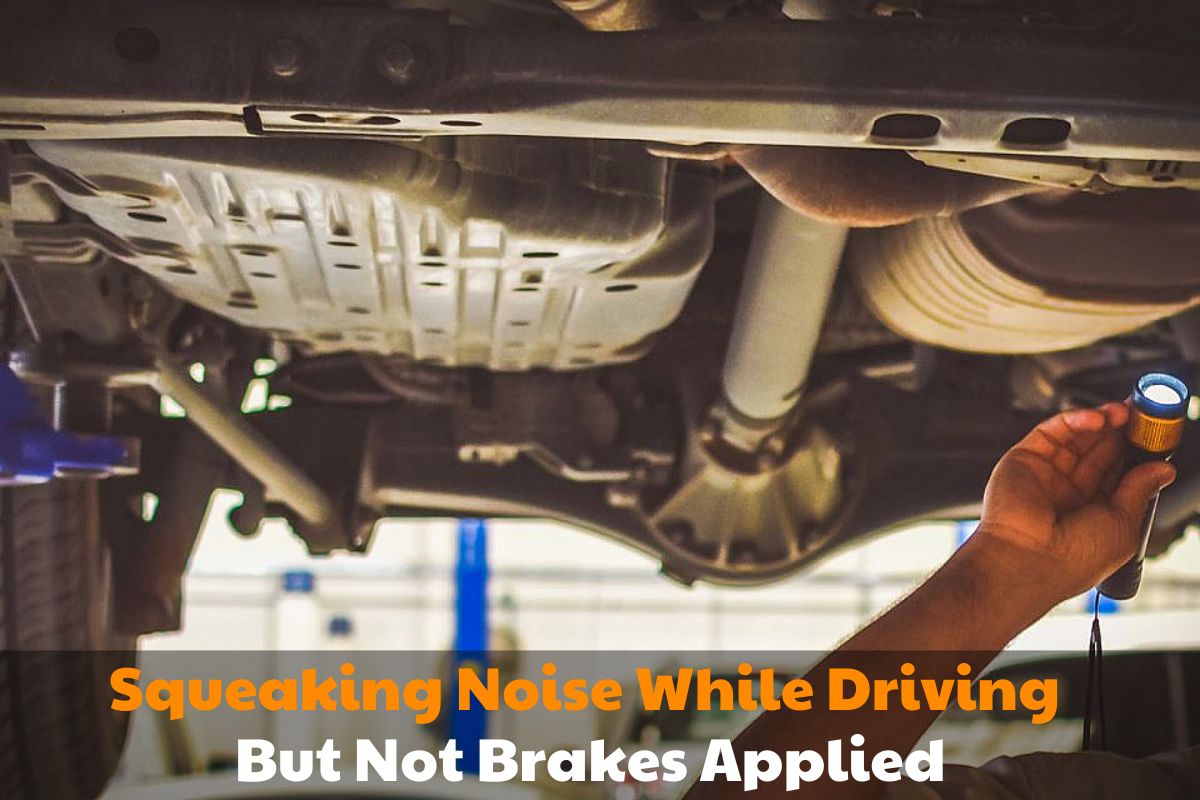Discussion Topic: Squeaking Noise While Driving But Not Brakes Applied
If you’re like most people, you might not be surprised when you hear your brakes squeak while applying pressure to the pedal. Usually, it just indicates that your brake pads need to be changed. But what if you hear a squeaking sound while driving, even when you’re not applying the brakes? In this informative video, we explore all potential causes of this noise and provide effective solutions for a quieter ride. Let’s dive into the reasons behind the squeaking noise and how to eliminate it.
“I recently noticed that my 2023 Mercedes Benz has been making a peculiar squeaking noise, similar to the sound of squeaky brakes. Surprisingly, the noise occurs even when the brakes are not applied, unlike the typical squeaky brake noise while braking.
The unusual noise seems to happen specifically at slow speeds, particularly when I pull into my neighborhood after work. It starts during acceleration after coming to a stop at a stop sign, but then stops again once I reach a higher speed.
I’m uncertain about the cause of this noise and would greatly appreciate any insights or suggestions. Should I bring it to a mechanic and have them assess the issue? I will update with more details as I continue to monitor and identify when and where the noise recurs in the next few days.”
Search Terms: squeaking noise while driving stops when braking, squeaking noise while driving slow, high-pitched squeal from car when moving but stops when braking, squeaking, noise while driving but not brakes applied new brakes, intermittent squeaking while driving, squeaking noise while driving but not brakes applied reddit, squeaking noise from wheel when driving, squeaking noise from front wheel when driving, why is my car squeaking on the left side when i drive
7 Causes of Squeaking Noise While Driving But Not Brakes Applied
1/Stuck Brake Caliper
The main component of a braking system that can cause a stuck brake caliper is the brake caliper itself. Brake calipers are part of the assembly and are responsible for housing the brake pads. When the caliper gets stuck, it leads to the constant application of the car’s brakes, resulting in squeaking noises, you could possibly have stuck or frozen calipers.
Additionally, a stuck caliper can cause the car to pull to one side, and the continuous rubbing may generate heat in the rotors. In rare circumstances, this could even result in a fire. Rust or inactivity are the primary causes of caliper seizing, and this issue tends to worsen if the car is kept in storage for an extended period of time. Moreover, the use of low-quality brake pads or rotors can contribute to this problem.
How to fix: Please contact a mechanic promptly to address the issue and prevent total brake failure caused by persistent brake squeaking.
2/Low Quality Brake Pad or Rotor
There are various types of brake pads available, ranging from affordable value-based options to pricier top-of-the-line choices. In studies comparing cheap and expensive brake pads, mid-range brakes typically exhibit the best performance. While cheaper pads may produce squeaks, the additional cost of pricey options may not be justified. To reduce noise, it is recommended to opt for high-quality rotors that offer superior protection against corrosion and rust. Look for coated or zinc-plated options. Before purchasing brake pads or rotors, it is advisable to read customer reviews for insights on potential noise issues.
3/Engine Noise
It is possible that the noise has nothing to do with the brake system. Perhaps you are actually hearing engine area noise, which can occur when a belt starts to slip or an internal failure takes place. In such cases, it is advisable not to drive until you have identified the issue, such as a stone being stuck.
4/Stuck stone
Debris often gets thrown up on the road between the brake shield and rotor while driving, posing a common issue for brake systems. Tiny pebbles and stones are frequent contaminants that might cause a squeaking sound and potential harm if not promptly addressed. To prevent debris from getting stuck in the brakes or tires, it is advisable to avoid driving on dirt roads whenever possible, opting for a smoother route instead. If you reside on a dirt road, expect this issue to arise more frequently. Timely maintenance is crucial to avoid any potential problems.
5/Rusty Brake Rotors
When it’s time to stop the wheels from rotating, brake rotors play a crucial role. Brake pads clamp onto the brake rotors, which are the discs. While the rotor may occasionally develop surface rust, it is generally not a major issue. This type of rust can be removed, but if left untreated, it may lead to pitting and damage on the rotor. Ultimately, this can cause a squeaky noise. To prevent rust, it is advisable to drive your car frequently and keep it sheltered from rain by parking it in a garage. Additionally, it’s a good practice to lightly apply the brakes a few times after starting your car to help in drying them out.
6/Loose Brake Dust Shield
The brake dust shield serves a critical purpose by protecting the brakes from the everyday dust accumulation. It ensures that the braking system remains less prone to dust-related damage. However, excessive vibration can cause the shield to come off, resulting in contact with the rotor and potential squeaking or transmission noise. It is essential to ensure proper installation and maintenance to prevent these issues.
7/Transmission Noise
Generally, there shouldn’t be any squeaking coming from the transmission. However, certain noises it produces might be mistaken for squeaks. For example, when the transmission fluid is low, it can start whining, which is often confused with squeaking. Regardless, it is important not to ignore any transmission noises.

How To Fix?
When you hear a hissing sound, it’s time to take action and solve the problem immediately. That way, you can prevent future problems. Before you begin, be sure to consult your vehicle’s factory service manual. Follow these steps to fix the problem
1/Drive Forward and Backward
To efficiently resolve the problem of a stuck debris in the brakes or wheels of a car, a recommended approach is to repeatedly move the vehicle both forward and backward. If this initial attempt does not yield results, exercise caution while trying to manually dislodge the debris to avoid causing further harm. It is important to inspect the affected parts carefully, ensuring that no priceless components are subjected to excessive force.
2/Inspect the Brakes
To ensure the optimal functioning of your brakes, conduct a thorough inspection. If debris is not the issue, check if the calipers are seized. If so, prompt repair is necessary. Additionally, inspect the brake pads and rotors for corrosion and rust. If required, replace them with high-quality replacements.
3/Inspect the Engine for Noises
When inspecting the engine for noises, make sure to complete the other diagnostics first. Once the engine is running, pay close attention to the sound to determine its source. If you notice squeaking, it is likely coming from a belt. In such cases, immediate replacement is recommended to prevent further damage.
4/Inspect Transmission
When inspecting the transmission, it is important to thoroughly examine it, which can be challenging without the proper equipment and expertise. However, you can check the fluid levels and ensure it is filled appropriately before driving the car. If the fluid appears worn out or burned, it should be replaced. For further assistance, please feel free to reach out.
5/Contact a Professional
For complex diagnoses or repairs beyond your expertise, it is advisable to enlist the assistance of a local professional. I hope you found this information valuable.
Can you continue to drive a car with squeaking noise but brakes are not applied?
The answer is yes, but it’s not recommended. Squeaking brake noises may not necessarily be dangerous, but they can be quite bothersome and distracting to you and the people around you. If your brakes are squealing, it’s best to take care of the issue right away. Ignoring it may lead to further complications like warping of rotors and shorter stopping distances. It’s important to note that brakes have a limited lifespan and can wear out over time. So act as soon as you notice any signals of brake wear and fix the issue immediately.


I’m Timothy Ballard, owner of a used car dealership in Springfield. I love just about everything automotive, but I have a special place in my heart for trucks. I’m an ASE Certified Master Technician, so I know my way around a car. In my spare time, I enjoy traveling with my family and hiking new trails.

If your car makes a squeaking noise while driving, but not when braking, or if you hear a grinding noise while driving, but not when stopping, it indicates a possible issue with your steering system, suspension, or brakes. Addressing these concerns is crucial for the proper functioning and safety of your vehicle.